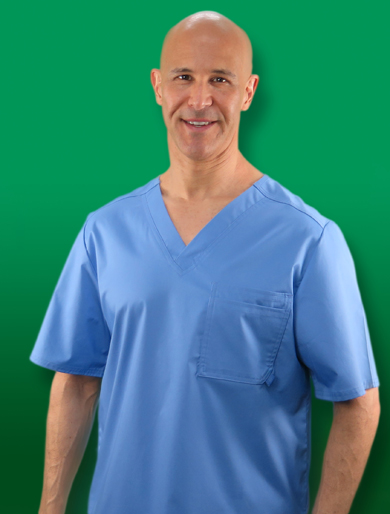Frequently Asked Questions

Question: My children keep telling me to stand straight and stop sticking my neck out. I wasn’t aware I was doing this, although I started having trouble with my neck and shoulders hurting about six months ago. Please explain this to me.
Answer: This is commonly known as Forward Head Posture (FHP). It often causes neck pain accompanied by misalignment in the area between your shoulders and head.
FHP often results from yet another posture issue called kyphosis. Kyphosis is a clinical term for a posture in which your shoulders and upper back round forward. There are several types of kyphosis. You may know kyphosis by its less flattering nickname: hunchback.
When the shoulders round forward, as they tend to do after many consecutive hours sitting at a desk, computer, or sitting behind the wheel of the car, the head is also brought forward. This occurs because the upper back area (thoracic spine) supports the neck and head. When the thoracic spine moves or changes its position, under most circumstances, your head and neck will follow. Most of the head's weight is in the front, and this contributes to the forward movement as well.
A Postural Deviation: Theoretically, your head is in proper alignment with your neck when your ears line up with your shoulders. When we observe posture in our assessments, we look for this alignment and how the rest of your body might be misaligned or deviated.
FHP and Muscle Group Imbalance: Forward head posture often results in a strength imbalance between muscles that support and move your neck, shoulders, and head. The muscles in front of your neck may become weak while the ones in the back may become short, tight, and strained.
Mindfully standing and sitting with good posture, along with exercises to strengthen your neck, may help get you back in alignment. Stretching may also help as neck muscles, in general, can get extremely tight and prevent you from doing your exercises fully. Stretching your neck may also relieve pain.
If your neck gives you a lot of pain, or if you are not sure how to get started with a neck exercise program, consult with your physician.




